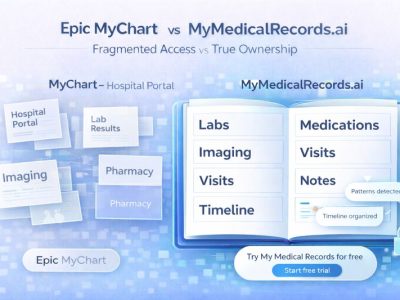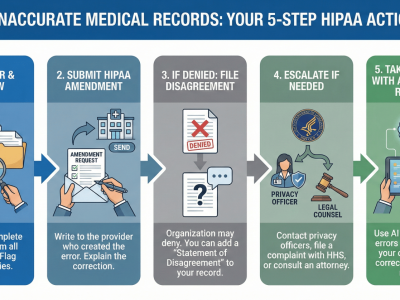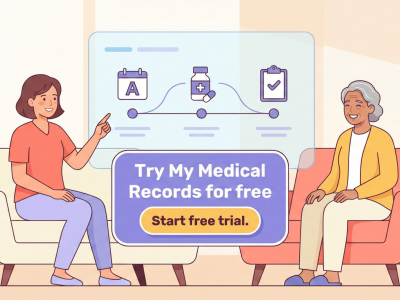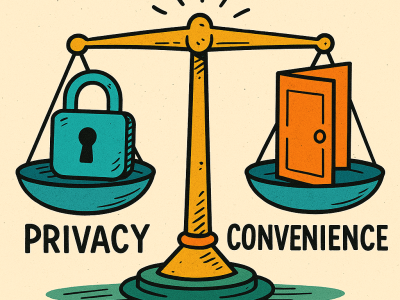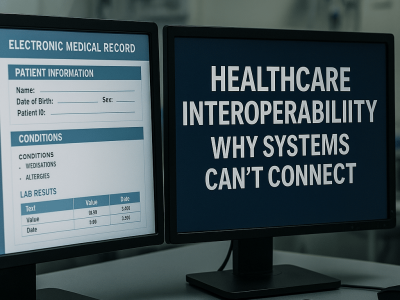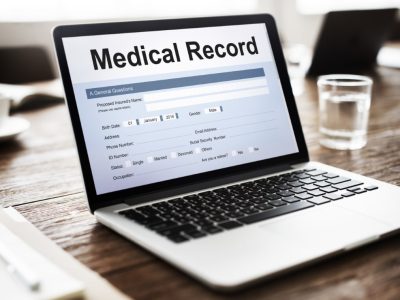Storing your medical records in the cloud offers unmatched convenience and accessibility—but it also raises important questions about security, privacy, and control. In this article, we deeply explore both sides so you can make an informed decision about your digital health data.
KEY TAKEAWAYS
-
Cloud storage enables secure, remote access to health records anytime, anywhere.
-
Enhanced collaboration and seamless record sharing improve care coordination.
-
Risks include data breaches, HIPAA compliance issues, and dependency on digital infrastructure.
-
Proper safeguards—encryption, backups, and privacy policies—significantly reduce risk.
-
Platforms like My Medical Records deliver the benefits of cloud storage with advanced AI-driven data protection.
Table of Contents
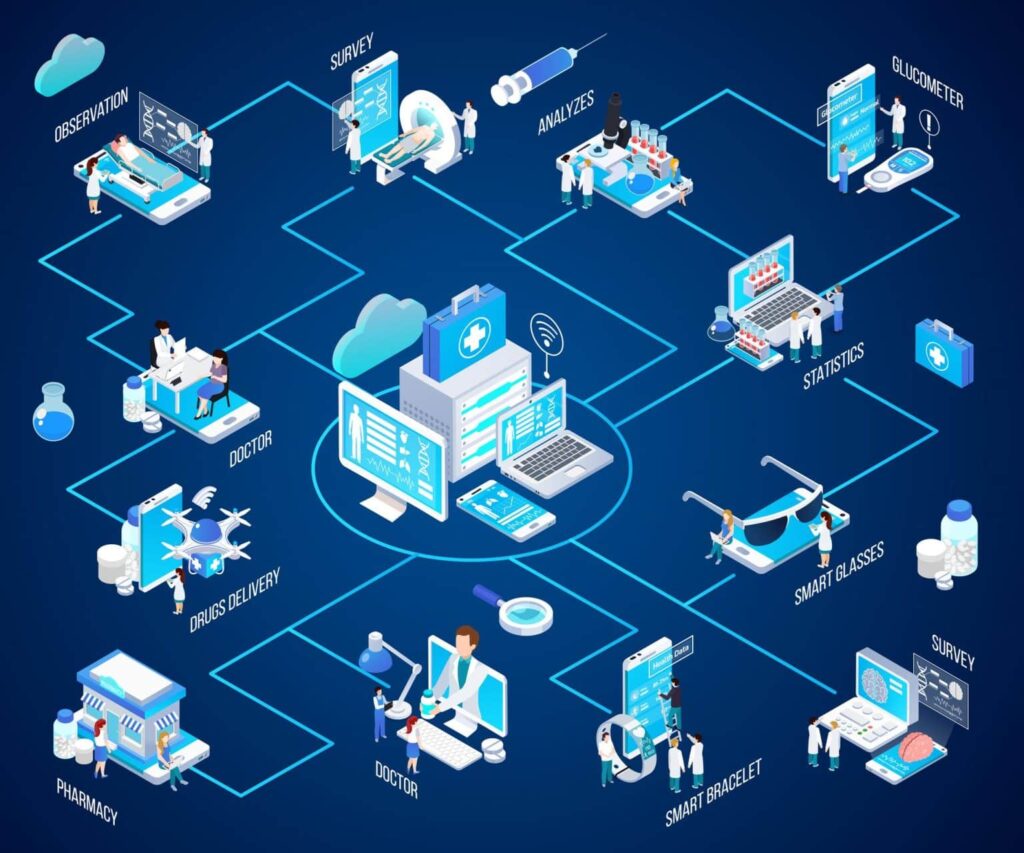
In today’s digital world, more patients are turning to cloud-based services to store and manage their personal health information. But while cloud storage offers convenience and mobility, it also introduces legitimate concerns around data privacy, compliance, and accessibility.
Through this blog, we’ll discuss the advantages and drawbacks of cloud-based medical record storage—from speed and simplicity to risk and reliability. We’ll also provide practical insight into how platforms like My Medical Records blend AI innovation with robust security to create a modern, secure solution.
Advantages of Cloud-Based Medical Records
One of the biggest benefits of storing medical records in the cloud is instant access. Whether you’re traveling, consulting new providers, or coordinating family care, having your information stored online means you aren’t tied to paper files or outdated systems. This accessibility not only streamlines doctor visits but also reduces emergency delays—when every second counts.
Collaboration becomes far easier. Providers, specialists, caregivers, or legal representatives with permission can view or share documents instantly—streamlining workflows and improving care coordination. This is particularly helpful in scenarios like treating complex conditions, working with multiple specialists, or managing legal cases.
Scalability and automation are also strong advantages. Cloud platforms eliminate the need for physical storage or manual filing. They can automatically back up data, detect errors, and even tag and categorize documents, saving time and reducing the risk of loss or misplacement.

Potential Risks and Limitations
However, storing medical records in the cloud introduces potential vulnerabilities. Cybersecurity threats like data breaches, hacking, or unauthorized access remain a concern—especially when dealing with highly sensitive information. While most reputable cloud providers use encryption and secure protocols, breaches are still possible if systems are misconfigured or weakly managed.
Privacy and regulatory compliance are another limitation. Healthcare data must comply with laws like HIPAA (in the U.S.) or GDPR (in Europe). Storing records offshore, syncing with third-party apps, or sharing data improperly may incur legal ramifications. Patients must ensure that the service they choose has clear policies and strict protocols.
Dependency on the internet and digital infrastructure poses another drawback. If servers go down, internet access is limited, or the platform experiences an outage—your health data may become temporarily inaccessible. That’s why robust redundancy and local backup options are essential safeguards.

Cloud Convenience Meets Lifestyle Needs
For many individuals—especially travelers, remote workers, or those who switch providers—cloud storage offers unmatched convenience. You can upload reports, scans, test results, and diagnosis documents easily through mobile apps or web portals. When needed, you can download or send them to providers, insurers, or legal professionals without waiting for paper records.
Uploading your medical record number and identifying metadata to a platform like My Medical Records can streamline future access and verification. It also eliminates inefficient delays, as all providers have consistent identifiers for your file.
Importantly, cloud storage can also support advanced AI-driven features like auto-sorting, duplicate detection, contextual search, and document expiry reminders. These functions significantly reduce manual work and improve accuracy—especially in complex cases or long-term health management.
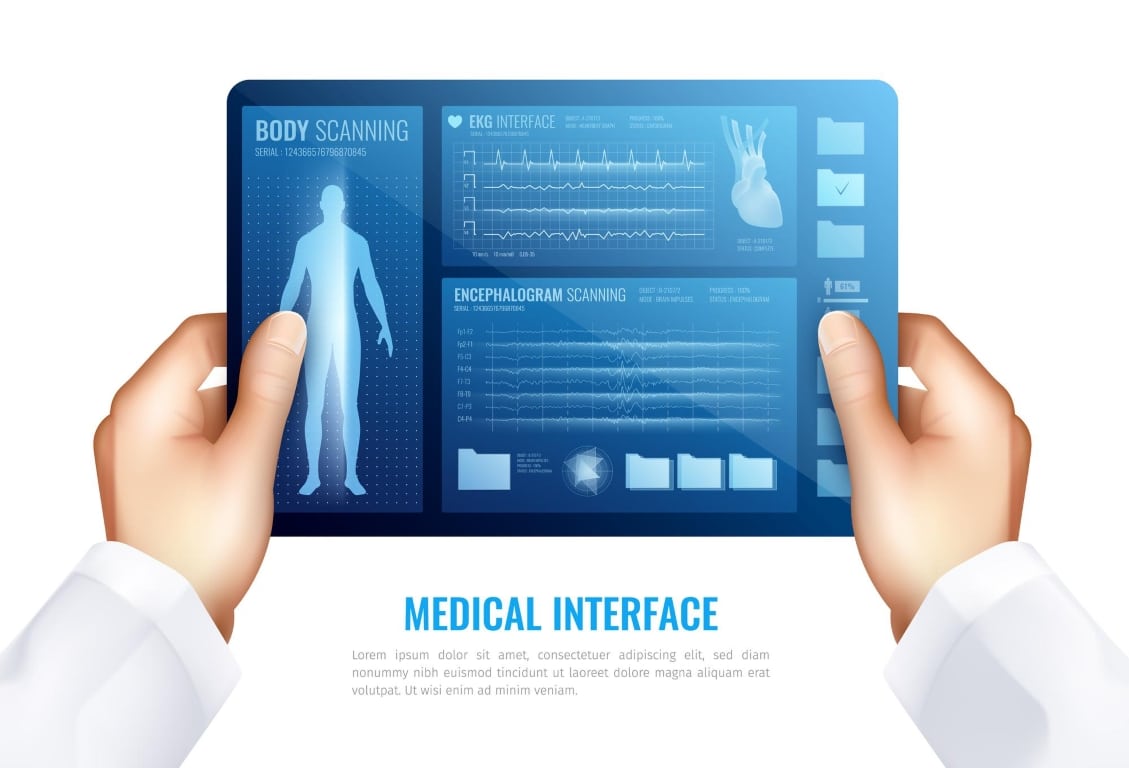
AI-Secured Record Management
Platforms like My Medical Records combine the benefits of cloud storage with intelligent AI-driven tools for secure medical record management. Through encryption, two-factor authentication, audit logs, and regulatory compliance, the platform ensures data remains protected even during remote access or transfers.
Moreover, if you have concerns about outdated or inaccurate medical data, AI can help flag anomalies, prompt you to verify details, or even assist when correcting inaccurate diagnosis in medical records—ensuring your health history remains accurate and up‑to‑date.

Real-World Use Cases: When Cloud Storage Makes a Difference
Consider a family dealing with complex health needs: instead of juggling paper folders, each member uploads records to the cloud. Specialists, emergency departments, and insurers can securely access the necessary information instantly—improving communication and reducing redundant testing.
In legal cases—such as workers’ compensation or personal injury claims—having rapid access to full medical history can be invaluable. Cloud access allows attorneys or granted representatives to review needed records efficiently, especially when combined with AI features like streamlined search or categorization.
Factors to Consider Before Choosing Cloud Storage
Before migrating health documents online, evaluate the following:
-
Does the platform use end-to-end encryption and HIPAA-compliant safeguards?
-
Is there a reliable backup and recovery system?
-
Are access controls granular and under your control?
-
Can you easily share or revoke permissions after granting them?
-
Is the provider transparent about data policies, retention, and deletion?
These questions help ensure that the cloud does not come at the expense of safety or privacy.
Comparing Cloud Storage with Traditional Methods
Paper files and local drives may seem more tangible, but they come with risks too—physical damage, misplacement, limited sharing, and manual organization. Even digital PDFs stored locally can degrade over time or become inaccessible with technology shifts.
In contrast, cloud platforms address these issues but introduce digital dependencies and shared control. They offer synchronization, metadata tagging, and access logs—but require thoughtful setup and user awareness to maintain security.
Choosing the right solution often means weighing convenience against control—leading many to adopt hybrid strategies: secure cloud storage backed by encrypted local copies.

Why My Medical Records Stands Out
My Medical Records has been built with both AI-powered innovation and professional-grade security in mind. It supports safe, encrypted cloud storage while empowering users to control access, manage sharing securely, and maintain accurate health data.
Rather than relying on cumbersome systems or fragmented storage, users can enjoy centralized, organized, and AI-assisted record management. Whether sharing records, updating documents, or collaborating with multiple providers, the system simplifies the process while preserving trust and compliance.
Interested in learning where to store medical records securely? You can read more about secure options at this page.
Making the Right Decision for Your Health Records
Ultimately, deciding whether to store your medical records in the cloud comes down to your needs: speed and coordination vs. control and caution. For many, a well-chosen cloud solution paired with best practices offers the best of both worlds—security, accessibility, and peace of mind.
If you want help navigating your options—how long to keep records, when to delete old files, or how to use AI securely—we invite you to learn more about My Medical Records. For support or questions, feel free to contact us anytime.
Helpful Tips for Managing Medical Records Securely
Always enable two-factor authentication, review and rotate your access permissions periodically, and retain encrypted local backups to ensure continuity even during outages or loss of access.
Summary:
Storing medical records in the cloud offers powerful advantages in access, collaboration, and automation—while presenting understandable concerns around security, privacy, and digital reliance. When done correctly, especially with platforms like My Medical Records that prioritize both compliance and innovation, cloud storage can become a trusted tool in maintaining complete, accurate, and accessible health history.
Related Topics:
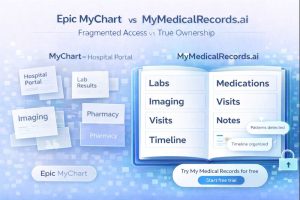
Epic MyChart vs. MyMedicalRecords.ai: Portal Access vs. True Ownership
Epic MyChart vs. MyMedicalRecords.ai: Portal Access vs. True Ownership Meta description: Epic MyChart only shows records from one hospital system. MyMedicalRecords.ai aggregates 100% of your
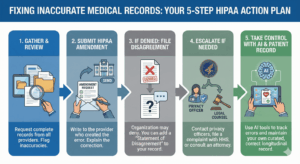
What to Do If There Is Inaccurate Data in Your Medical Record
The chart that does not match you You probably discovered the inaccurate medical records error because something routine went wrong: a prior authorization denied, a
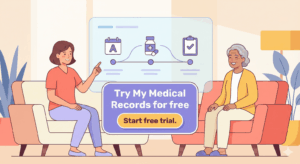
From Chaos to Clarity: A Family Caregiver’s Guide to Unified Health Records
Here’s what nobody tells you about caregiving: The hardest part isn’t watching your loved one struggle with their diagnosis. It’s trying to keep track of
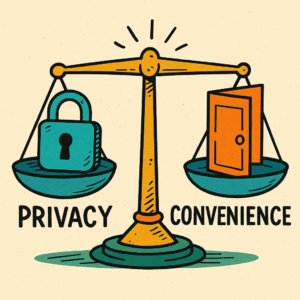
Privacy vs Access: Finding the Right Balance in Your Digital Health Record
Healthcare interoperability is the ability of different healthcare systems, devices, and applications to seamlessly share, understand, and use patient data across organizations and geographic boundaries.
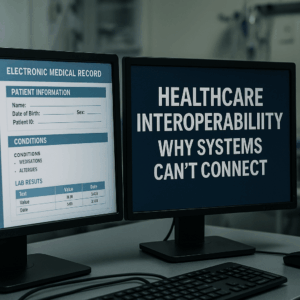
Healthcare Interoperability: Why Systems Can’t Connect
Healthcare interoperability is the ability of different healthcare systems, devices, and applications to seamlessly share, understand, and use patient data across organizations and geographic boundaries.

How to Merge Medical Records from Multiple Doctors and Avoid Errors & Duplicates
Learn how to merge medical records from multiple doctors, avoid duplicate entries, and reduce errors. Use AI tools like My Medical Records to simplify the process.

